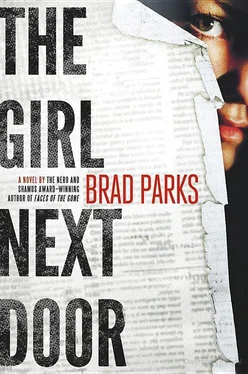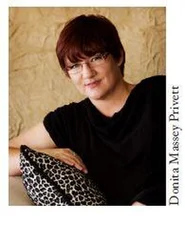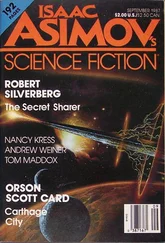Brad Parks - The Girl Next Door
Здесь есть возможность читать онлайн «Brad Parks - The Girl Next Door» весь текст электронной книги совершенно бесплатно (целиком полную версию без сокращений). В некоторых случаях можно слушать аудио, скачать через торрент в формате fb2 и присутствует краткое содержание. Год выпуска: 2012, ISBN: 2012, Издательство: Minotaur Books, Жанр: Триллер, на английском языке. Описание произведения, (предисловие) а так же отзывы посетителей доступны на портале библиотеки ЛибКат.
- Название:The Girl Next Door
- Автор:
- Издательство:Minotaur Books
- Жанр:
- Год:2012
- ISBN:031266768X
- Рейтинг книги:4 / 5. Голосов: 1
-
Избранное:Добавить в избранное
- Отзывы:
-
Ваша оценка:
- 80
- 1
- 2
- 3
- 4
- 5
The Girl Next Door: краткое содержание, описание и аннотация
Предлагаем к чтению аннотацию, описание, краткое содержание или предисловие (зависит от того, что написал сам автор книги «The Girl Next Door»). Если вы не нашли необходимую информацию о книге — напишите в комментариях, мы постараемся отыскать её.
The Girl Next Door — читать онлайн бесплатно полную книгу (весь текст) целиком
Ниже представлен текст книги, разбитый по страницам. Система сохранения места последней прочитанной страницы, позволяет с удобством читать онлайн бесплатно книгу «The Girl Next Door», без необходимости каждый раз заново искать на чём Вы остановились. Поставьте закладку, и сможете в любой момент перейти на страницу, на которой закончили чтение.
Интервал:
Закладка:
“Don’t let me wake you,” I said, as I slipped into my bedroom, where Deadline was snoozing on the radiator cover by the window, bathed in sunlight.
I opened the door to my closet and selected a charcoal gray suit. Not that it was much of a choice. I only own one suit, which is still one more than a lot of newspaper reporters. I bought it my senior year at Amherst College for job interviews. Now that there are no jobs left in print journalism, I use it exclusively for weddings and funerals. I couldn’t begin to count how many people that suit has married or buried.
I dressed quickly. It helped I had already been wearing my usual reporter uniform, which included a white shirt and half-Windsor knotted tie. It’s a bit formal by the standards of my profession, which went business casual sometime around the invention of printed type and slowly degraded from there. I get teased by my colleagues for my stodgy attire, but I don’t think that’s fair. I mean, hey, sometimes I wear a blue shirt. Sometimes it even has stripes.
So, yeah, my wardrobe isn’t especially hip. But neither am I. Over the years, I have resisted the flat-front pant revolution, the slip-on shoe insurrection, the hair product revolt, and a host of other rebellious fashion movements I felt would take me further away from what I really am: an upstanding, prep-school-educated, clean-shaven WASP with freshly cut side-parted hair and absolutely no interest in changing styles.
“Try to keep it down,” I told Deadline as I departed. “I don’t want the neighbors calling in a noise complaint on you.”
Deadline signaled his acknowledgment by keeping his eyes screwed shut and his body unmoving. “Good boy,” I said.
I went back outside to my car, a five-year-old Chevy Malibu that often turns women’s heads-but sadly, only because it keeps getting holes in the exhaust line. I’ve been told that driving an aging Malibu isn’t good for my “image,” to which I usually have two responses: one, it doesn’t make sense to spend money on a car in a place like New Jersey because even if the tailgaters don’t get you, the potholes will; and, two, people who judge others based on what car they drive are idiots.
It took four minutes to get to the Johnson-Eberle Funeral Home, a pristine white Victorian with immaculate landscaping. I parked on the street because the lot behind the building was already full of cars driven by people who had come to pay their last respects to Nancy B. Marino.
* * *
If you want good attendance at your funeral, die young. Almost everyone you ever knew is still alive and mobile enough to make it out. It’s only the people who hang on to ninety or one hundred-and outlive their would-be funeral audience-who get the lousy crowds.
As such, the Johnson-Eberle Funeral Home had put Nancy in the largest of their three viewing rooms, and it still wasn’t big enough. Some of the mourners sat in the rows of white folding chairs set up in the middle of the room. Others stood around the edges. Still more spilled outside into the lobby and down the main hallway that split the center of the building.
I’m sure some of them were fellow employees of the Eagle-Examiner, but I’d have little chance of knowing them-the distribution arm of our operation is so separate from the newsroom, they might as well be different companies. The Belleville High School Class of 1987 also appeared to be well represented, as was the staff of the State Street Grill. It was, all in all, a nice cross section of regular folks from Essex County, New Jersey.
Really, there was only one person in the crowd who didn’t fit. He was a tall, patrician-looking man standing self-consciously against the far wall, looking like he’d rather be anywhere else. From his perfectly coiffed ash-blond hair to his waxy pale skin to his insincere blue eyes, I’d know him anywhere: Gary A. Jackman, the not-so-esteemed publisher of the Newark Eagle-Examiner .
It was a nice gesture for him to show up, and I might have even given him credit for it if I didn’t otherwise detest the man. He had come to us from a chain of smaller papers in Ohio or Michigan or something similarly Midwestern. His lone qualification for the job appeared to be that he knew how to cut a budget better than anyone else. He did not have a background in newspapers before that-I think he operated a national chain of sweatshops, or something like that-and I held it against him every chance I got.
In the newsroom, where he was universally despised, he was known by a variety of nicknames. The features desk, with its appreciation of alliteration and poetry, called him “Greedy Gary” or “Scary Gary.” In sports, where the locker room influence tends to make them a little crude, he was “Jackoff.” In my corner of the newsroom, where we’re more direct about things, he was “Jackass.”
In the two years he had been at the paper, he had made it clear to us that he cared deeply about how much money we spent but very little about anything else we did-those forgettable things like telling great stories, uncovering grave injustices, or holding powerful people accountable for their actions. He actually admitted he did not read the newspaper each day, an unforgivable sin in the minds of the people who toiled so assiduously to produce it. Yet his most despicable act may have been that, at a time when he was sacking editors and reporters with lunatic glee, he kept three secretaries. What he did to occupy them was a source of constant speculation.
His personal appearance only made him easier to dislike. He was perhaps best described as foppish, with his expensively tailored clothes, monogrammed cuff links, and-his personal calling card-a predilection for pocket squares. It was also rumored, though never confirmed, that he had a manicurist come into the office once a week to keep his nails trim, as if he couldn’t just buy nail clippers like everyone else.
As I approached him from the other side of the room, he had those well-manicured hands crossed in front of him. He was talking with a man who had stubbornly refused to give in to his male-pattern baldness, with one of the worst comb-overs I had ever witnessed: the piece of hair stretched across his shiny head had come loose and was sticking up and to the left, sort of like a single horn on a lopsided unicorn.
Jackman and the unicorn were having a rather animated conversation-correction: the unicorn was animated, while Jackman just seemed to be tolerating him-and I observed from a distance. The unicorn kept gesturing broadly, occasionally pointing a finger at Jackman, like he was accusing him of something dastardly. Maybe he didn’t like pocket squares? Tough to tell.
I finally got curious as to what had the guy overstimulated, so I closed to within eavesdropping range. But I was too late. All I heard was Jackman end the conversation with, “… I’m sorry, this just isn’t the time or place. We’ll have to talk later. Now, if you’ll excuse me.”
Jackman rather pointedly turned his body away from the unicorn, who forced out an exasperated sigh and then walked in the opposite direction. A small part of me wondered, Not the time or place for … what exactly? Was the unicorn asking Jackass to dance the polka? But a much larger part of me had a story to write and a deadline to respect. I gave Jackman a moment or two to clear his head, then sidled up to him.
“Mr. Jackman, Carter Ross, we’ve met before,” I said in a low voice, extending my right hand.
He looked at me disdainfully and did not uncross his arms, leaving my hand hanging in the air. We had met before, on several occasions. He had even presented me an award for outstanding reporting once. Yet he was examining me like I was something that fell out the back end of one of his foxhunting dogs.
Читать дальшеИнтервал:
Закладка:
Похожие книги на «The Girl Next Door»
Представляем Вашему вниманию похожие книги на «The Girl Next Door» списком для выбора. Мы отобрали схожую по названию и смыслу литературу в надежде предоставить читателям больше вариантов отыскать новые, интересные, ещё непрочитанные произведения.
Обсуждение, отзывы о книге «The Girl Next Door» и просто собственные мнения читателей. Оставьте ваши комментарии, напишите, что Вы думаете о произведении, его смысле или главных героях. Укажите что конкретно понравилось, а что нет, и почему Вы так считаете.












